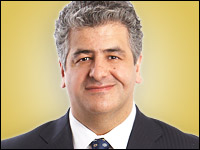
In a recent decision that might have long-term implications on how Internet search engines run their advertising programs, the District Court for the Eastern District of Virginia released its written opinion on Government Insurance Company v. Google, Inc., et al., a case decided a while back.
The Court ruled that there was insufficient evidence to bar the defendant, Google, from displaying the banner ads of competitive insurers when Internet users conduct a search using the trademarked terms of the plaintiff, Government Employees Insurance Company (“GEICO”), such as the trademark “GEICO Direct.”
From the perspective of everyday Internet users, the Court was essentially asked to strike a balance between the legitimate concerns of trademark holders with potential confusion resulting from use of trademarks by third parties, against the public’s ability to use the trademarks to search for items logically related to the trademarks.
As is often the case with Internet related disputes, the backdrop to this case is the ongoing evolution of Internet business practices in general, and the evolution of efficient Internet search engines and their corresponding business models in particular.
Complaint of Unfair Competition
The decision released on August 8, 2005, followed an earlier oral ruling that had rejected a significant portion of GEICO’s complaint that Google violates the Lanham Act and engages in unfair competition under Virginia state law by using GEICO’s trademarks to sell advertising on its Internet search engine.
GEICO had alleged that by selling advertising space to its competitors based on searches of GEICO’s trademarks — ads that appeared alongside un-sponsored or regular search results (“organic listings”) — Google was infringing on these trademarks and engaging in unfair competition under the Lanham Act.
Based on these allegations, GEICO had been seeking preliminary and permanent injunctions barring Google from:
- Selling GEICO’s trademarks or confusingly similar terms for use in Google’s advertising program;
- continuing to display third parties’ advertisements alongside the results of searches that use GEICO’s trademarks or confusingly similar search terms; and,
- making any use of GEICO’s trademarks or confusingly similar search terms unless expressly authorized by GEICO.
Defining Unfair Competition
Under the Lanham Act, a plaintiff must show five elements to be successful in a trademark infringement and unfair competition claim:
- The plaintiff possesses the trademark;
- the defendant used the trademark;
- the defendant’s use of the trademark occurred “in commerce”;
- the defendant used the mark “in connection with the sale, offering for sale, distribution, or advertising” of goods or services; and,
- the defendant used the mark in a manner likely to confuse customers.
Although the Court found it relatively straightforward to identify the first four requirements in GEICO’s favor, it was the last element that called upon the Court to find a reasonable balance between GEICO’s trademark concerns and the expectations of Internet search engine users.
Survey Says
In its effort to persuade the Court, GEICO had introduced an expert survey into evidence that GEICO claimed revealed a strong likelihood of confusion arising out of Google’s advertising program — namely the placing of sponsored third party links alongside Google’s organic listings. The survey had attempted to measure the initial interest confusion experienced by potential customers, both when GEICO’s trademarked terms appeared in the actual ads next to the organic listings, as well as when the terms did not appear in the ads.
However, in reaching its decision, the Court noted a number of problems with the methodology of the survey, including potentially leading the test users to answers favorable to GEICO’s position, the fact that the control group did not successfully demonstrate the source of the test group’s confusion, as well as the use of outdated screen shots of Google search results that potentially could have lead to greater confusion.
Striking a Reasonable Balance
The Court also found GEICO had failed to produce sufficient evidence to establish that advertisements that do not actually include GEICO’s trademarks in body of an advertisement violate the Lanham Act, despite the fact that Google’s advertising program allows those ads to appear when a user conducted a search using GEICO’s trademarks.
In reaching this last point, the Court noted that the methodological flaws in GEICO’s survey had called into question whether the test group would have “expressed similar confusion if they had been faced only with insurance-related ads that appeared next to the organic results” for searches using GEICO’s trademarks, but did not mention the actual marks in the ads.
It is this last potential inference of the Court, namely that Internet users do not confuse the use of a trademark as a search term with returned ads that are logically connected to the search term but not directly related to it, which strikes a reasonable balance between the legitimate concerns of trademark holders and public interest.
Remaining Potential for Confusion
Despite the many flaws noted by the Court of the expert survey, the Court did find GEICO’s survey results to be sufficient to establish a likelihood of confusion regarding advertisements displayed in Google’s ad program that included GEICO’s trademarked terms in the actual advertisements next to the organic listings.
Because of this remaining potential liability of trademark infringement, the Court left several legal questions unanswered, including whether Google itself is liable for any Lanham Act violations (the question of whether the advertisers themselves were in violation was not before the Court since they were not a party in the case), the time frame during which the violations occurred and the measure of damages or other relief that GEICO may be entitled to if Google is found liable.
With regards to these last remaining issues, the Court decided to temporarily stay the proceedings to give GEICO and Google time to consider the Court’s written opinion and to determine whether the parties themselves can resolve the remaining issues of liability and damages.
Javad Heydary, an E-Commerce Times columnist, is a Toronto lawyer licensed to practice in both Ontario and New York and is the managing editor of Lawsof.com.












































Social Media
See all Social Media